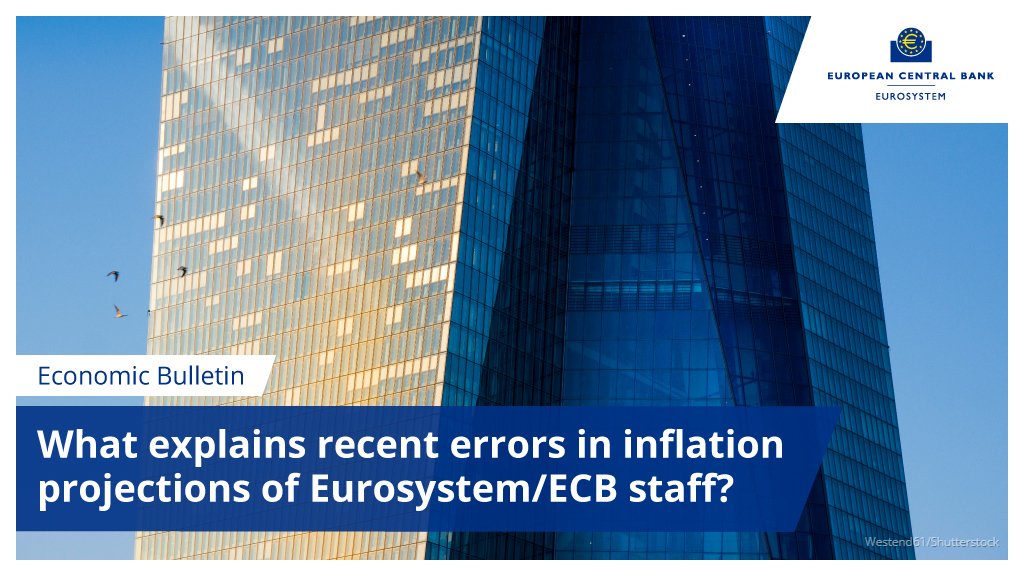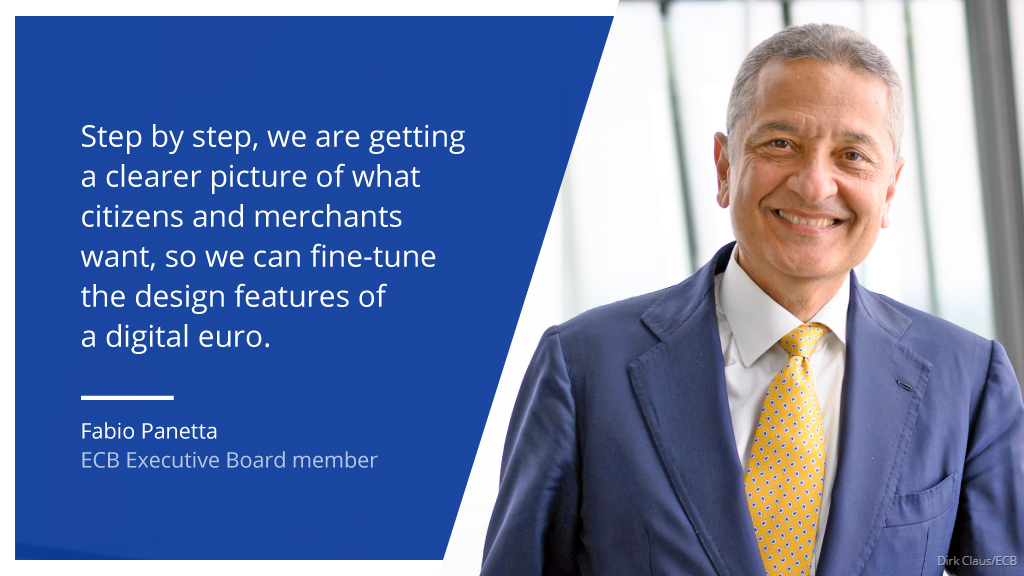
🧵Recent Eurosystem and ECB staff projections have largely underestimated surging inflation. Such forecast errors are widespread across peer institutions, which suggests they are due to unforeseen global factors ecb.europa.eu/pub/economic-b… #EconomicBulletin
1/3
1/3

The errors in our energy inflation projections largely reflect unexpected price hikes. More persistent supply bottlenecks and a swifter economic recovery than anticipated have also contributed to our underestimation of inflation when excluding energy and food
2/3
2/3
Forecasting inflation developments will continue to be a challenge for the foreseeable future, owing to volatile energy prices and the uncertainty from the war in Ukraine. Our staff continuously review and adjust the models and assumptions underlying the projections
3/3
3/3
• • •
Missing some Tweet in this thread? You can try to
force a refresh








